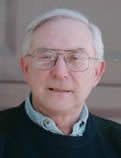
Economists recently have recognized a need to revise the picture of economic behavior portrayed in homo economicus, the long-held view that people act on the basis of self-interest alone. There is increasing recognition that a good deal of human behavior is not explained by the concept.
For instance, David Hausman and Michael McPherson, who together founded the journal Economics and Philosophy, recount an experiment in which wallets containing cash and identification were left in the streets of New York. Nearly half were returned to their owners intact, despite the trouble and expense of doing so to their discoverers. People seem naturally inclined to observe norms that put the welfare of others over their own interests. Many other researchers have found the same phenomena.
What constrains individuals from seeking solely their self-interest? One answer is that our tendency to maximize our material welfare at the expense of others is inhibited by a deeply ingrained set of moral values.
Economists have devised a number of approaches to formally represent the relationship between moral values and the standard utility framework of economic theory. One way is to think of moral values as preferences comparable to preferences for goods and services. So just as someone is satisfied when they acquire a desired good or service, likewise they are satisfied when they comply with a societal moral value. At the same time if we act contrary to a moral value, we feel uneasy and unsatisfied. This formulation appears more appropriate in modeling altruistic behavior, such as purchasing a gift for one’s child, than it does for an ethical norm like honesty or a commitment like duty.
Amartya Sen, the Nobel Prize-winning economist who will deliver the 2012 Hesburgh Lecture at Notre Dame on April 17, has proposed an approach in which he distinguishes between “ordinary preferences” and “metapreferences” that stand over and above ordinary preferences. Moral values regarding fairness, liberty and honesty, among others, make up the metapreference function that determines the ranking of ordinary preferences.
So, for example, a person who has a strong preference to consume grapes still doesn’t buy any because of a commitment to justice for farm workers. This approach captures the internal conflict surrounding such personal choices as whether or not to smoke. An individual may simultaneously desire a cigarette (ordinary preference) and desire not to smoke (metapreference) in the first place.
Rather than conceiving of ethical values as mere utilitarian preferences or metapreferences guiding the rankings of common goods, norms might also be seen as constraints on choices. As in a budget constraint, norms could be seen as externally imposing (presumably from the conscience or superego) limits on available choices. However, unlike budget constraints, norms may be violated; therefore, the limits they impose are not rigid.
Missing from all these arguments, however, is what the economist David Hirshleifer calls the “dark side” of human behavior. While there is some discussion of envy and revenge as motives, most economists believe that people are better than the selfish agent depicted in rational actor theory. Charles Anderton points out that it might be closer to reality to model human behavior as both better and worse than mere selfishness. As Michelle Garfinkel and Stergios Skaperdas note:
The notion of homo economicus is a bit puzzling in what it requires of a human being: he will haggle to death to get a better price, though never think about grabbing what the other person has if given the chance to do so. This is an image of well-defined ruthlessness within a bubble of sainthood. But, real human beings everywhere — from Russia, to Somalia, to Columbia, to inside U.S. prisons as well as board rooms, to name just a few places — are often so ruthless that they burst this bubble.
These economists see the darker side of human behavior as a general phenomenon having vast economic implications little explored by mainstream and heterodox economists alike.Charles K. Wilber is a Notre Dame professor emeritus of economics and fellow of the Kroc Institute for International Peace Studies who has written widely on Catholic social thought and economic theory. His most recent books are Economics and Ethics: An Introduction (Palgrave Press, 2010) with Amitava Dutt and Catholics Spending and Acting Justly (Ave Maria Press, May 2011). Email him at cwilber@nd.edu.